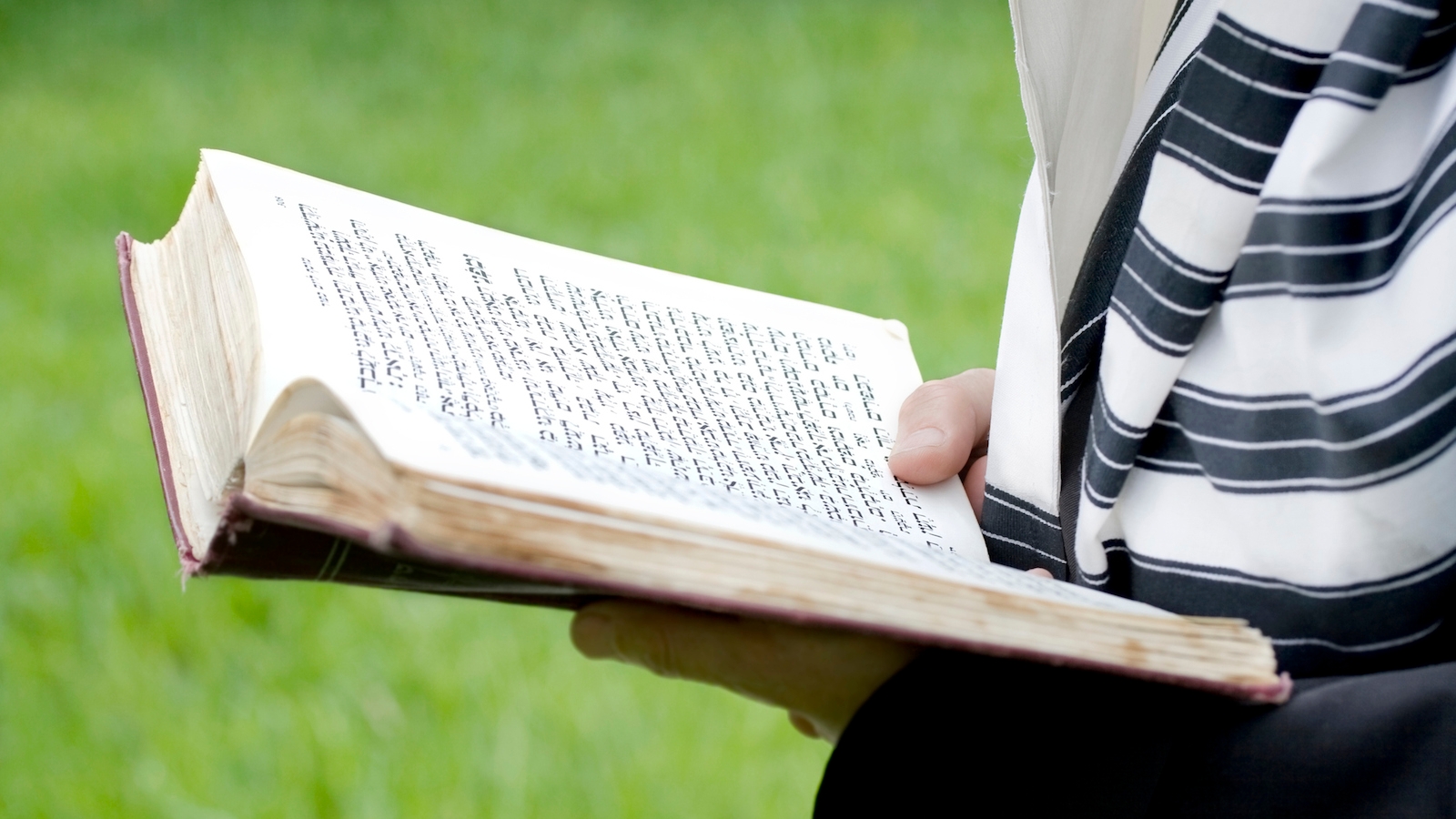The following is the text of the opening section (known as the Ashamnu) of the traditional Ashkenazic Viddui prayer for Yom Kippur. The full text can be found here.
אֱלֹהֵֽינוּ וֵאלֹהֵי אֲבוֹתֵֽינוּ
Eloheinu veh-elohay avoitaynoo
Our God and God of our fathers,
With your help, My Jewish Learning can provide endless opportunities for learning, connection and discovery.
תָּבֹא לְפָנֶֽיךָ תְּפִלָּתֵֽנוּ,
ta-voh li-fahnechah
let our prayer come before you
וְאַל תִּתְעַלַּם מִתְּחִנָּתֵֽנוּ
vee-ahl tit’alahm mit-cheenahtaynoo
and do not ignore our supplication.
שֶׁאֵין אֲנַֽחְנוּ עַזֵּי פָנִים
she-ayn anachnoo ah-zay pah-neem
For we are not so brazen-faced
וּקְשֵׁי עֹֽרֶף
u-k’shay oh-reph
and stiff-necked
לוֹמַר לְפָנֶֽיךָ
loh-mahr lifanecha
to say to you,
יְהֹוָה אֱלֹהֵֽינוּ וֵאלֹהֵי אֲבוֹתֵֽינוּ
adonai elohaynoo veh-ehlohay avotaynoo
Adonoy, our God, and God of our fathers,
צַדִּיקִים אֲנַֽחְנוּ וְלֹא חָטָֽאנוּ
tzadee-keem anahch-noo v’loh chatahnoo
“We are righteous and have not sinned.”
אֲבָל אֲנַֽחְנוּ וַאֲבוֹתֵֽינוּ חָטָֽאנוּ:
ah-vahl anahchnoo va-avotaynoo cha-tah-noo
But, indeed, we and our fathers have sinned.
אָשַֽׁמְנוּ.
ah-sham-noo
We have trespassed [against God and man, and we are devastated by our guilt];
בָּגַֽדְנוּ.
bah-gahd-noo
We have betrayed [God and man, we have been ungrateful for the good done to us];
גָּזַֽלְנוּ. דִּבַּֽרְנוּ דֹּֽפִי.
gah-zahl-noo
We have stolen; We have slandered.
הֶעֱוִֽינוּ.
heh-eh-vee-noo
We have caused others to sin;
וְהִרְשַֽׁעְנוּ.
vih-heer-shah-noo
We have caused others to commit sins for which they are called רְשָׁעִים, wicked;
זַֽדְנוּ.
zahd-noo
We have sinned with malicious intent;
חָמַֽסְנוּ.
chah-mahss-noo
We have forcibly taken others’ possessions even though we paid for them;
טָפַֽלְנוּ שֶֽׁקֶר.
tah-fahl-noo sheh-kehr
We have added falsehood upon falsehood; We have joined with evil individuals or groups;
יָעַֽצְנוּ רָע.
ya’atznoo rah
We have given harmful advice;
כִּזַּֽבְנוּ. לַֽצְנוּ.
kee-zahv-noo lahtz-noo
We have deceived; we have mocked;
מָרַֽדְנוּ.
mah-rahd-noo
We have rebelled against God and His Torah;
נִאַֽצְנוּ.
nee-ahtz-noo
We have caused God to be angry with us;
סָרַֽרְנוּ.
sah-rahr-noo
We have turned away from God’s Torah;
עָוִֽינוּ.
ah-vee-noo
We have sinned deliberately;
פָּשַֽׁעְנוּ.
pah-shah-noo
We have been negligent in our performance of the commandments;
צָרַֽרְנוּ.
tzah-rahr-noo
We have caused our friends grief;
קִשִּֽׁינוּ עֹֽרֶף.
kee-shee-noo oh-rehff
We have been stiff-necked, refusing to admit that our suffering is caused by our own sins.
רָשַֽׁעְנוּ.
rah-shah-noo
We have committed sins for which we are called רָשָׁע, [raising a hand to hit someone].
שִׁחַֽתְנוּ.
shee-chaht-noo
We have committed sins which are the result of moral corruption;
תִּעַֽבְנוּ.
tee-ahv-noo
We have committed sins which the Torah refers to as abominations;
תָּעִֽינוּ.
tah-ee-noo
We have gone astray;
תִּעְתָּֽעְנוּ:
teeht-ah-noo
We have led others astray.
Hebrew and English text taken from The Metsudah Machzor, via Sefaria.



